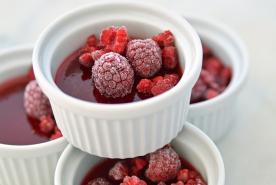Last updated: August 26, 2025
Medically reviewed by: NKF Patient Education Team
Contributions by: Melanie Betz MS, RD, CSR, FNKF, FAND
Cystine kidney stones are caused by a condition you are born with called cystinuria.. Like all kidney stones, they can cause pain, blood in urine, and surgery to remove them. There are things you can do to prevent or reduce how often you get cystine kidney stones.
Cystine is a molecule that is created when two cysteine molecules combine. Cysteine is an amino acid - the chemicals that make up protein.
If you pass a kidney stone or have one surgically removed, ask your doctor to test the stone to see what kind of stone it is. This is the best way to know if you have a cystine kidney stone.
Knowing your kidney stone type can help your doctor know how to prevent more kidney stones from forming. A 24-hour urine collection can also give your doctor more information about the type of stones you have.
Risk factors for cystine kidney stones
Cystine stones are caused by a rare genetic condition called cystinuria (SIS-tin-YOOR-ee-uh). About 1 in 700 people have cystinuria. This condition causes cystine to build up in your urine. When levels get too high, cystine can crystallize in your urine and form kidney stones.
Cystinuria tends to cause large kidney stones that grow quickly. People with cystinuria tend to have many stones in their life and usually start forming them early in adulthood. It is a lifelong condition that can be controlled but not cured.
Symptoms of cystinuria
Cystinuria only causes symptoms if you have a kidney stone. It does not impact any other part of your body.
If you have a kidney stone, symptoms may include:
- Pain while urinating
- Blood in the urine
- Sharp pain in the side or the back (almost always on one side)
Pain in the groin (where your legs meet your body), pelvis (the lower part of your belly between your hips), or abdomen (your stomach area). Feeling sick to your stomach (nausea) or throwing up (vomiting).
Ways to prevent cystine kidney stones
The goal of cystinuria treatment is to stop cystine kidney stones from forming. Your doctor will come up with a treatment plan best for you depending on how severe your symptoms are, how many kidney stones you have, and your health goals and preferences.
Here are some of the most common treatment recommendations for cystinuria to help prevent cystine kidney stones:
- Drink more fluids Drinking a lot of water and fluids helps make your pee more watery. This can help stop cystine from forming kidney stones.. People with cystinuria may need to drink more fluids than other people with kidney stones. Most should drink at least 100 fluid ounces (12-13 cups) of fluid per day. Ask your healthcare provider how much water you should drink each day.
- Eat plenty of fruits and vegetables. Cystine stones can form more easily when your urine is acidic. Eating more fruits and vegetables can lower acid levels in your urine. Aim for at least 5 servings of fruits and vegetables every day. \
- Avoid too much salt Avoiding too much salt can help keep cystine stones from forming. Limit sodium to 2,300mg per day. Remember, about 80% of the salt we eat is already in food. Start looking at the Nutrition Facts label to find salty foods in your diet.
- Avoid too much protein. Cystine is made from cysteine, an amino acid found in protein, especially animal proteins like beef, pork, poultry, fish and seafood. Your body needs some protein, but eating too much of it can cause cystine to build up in your urine. Too much protein from these foods can also make your urine more acidic. Ask a registered dietitian nutritionist how much protein is right for you.
- Take medicine. Some people with cystinuria may also need to take prescription medicine to help keep stones from forming.
- Potassium citrate is a common medication prescribed to lower urine acid levels.
- Tiopronin is another medication to help bind cystine and stop it from making kidney stones. Your doctor can help you know if medications are necessary for you, and which ones are right for you.
A 24-hour urine collection is also a good way to see if your cystine levels have come down.
Cystinuria and kidney failure
Most people do not get kidney failure from cystinuria, even with many kidney stones. However, without proper treatment for kidney stones, you could get:
- Kidney or bladder damage from a stone
- Urinary tract infections
- Kidney infections
- Blockage of the ureter (the tube that drains urine from the kidneys to the bladder)
Key Points
- Cystine stones are caused by a rare, inherited disorder called “cystinuria.”
- Cystinuria is a lifelong condition that will need to be actively managed to keep stones from forming.
- Treatment starts with doing things to keep stones from forming, such as drinking lots of water, avoiding too much salt, and eating less protein. If these steps are not enough, prescription medicine may be needed to help keep stones from forming.
- Small kidney stones may pass out of the body during urination. Larger stones may require surgery.
- With the right treatment, you can help keep new stones from forming. Most people can control cystinuria by diet changes and taking medicine to keep stones from forming.
Questions to Ask Your Healthcare Team
- What can I do to prevent more kidney stones?
- Is there medication that can help me prevent more cystine kidney stones?
- How much water should I drink?
- Are my kidneys working as well as they should?
- Should I add a nephrologist or registered dietitian to my kidney stone treatment team?
















